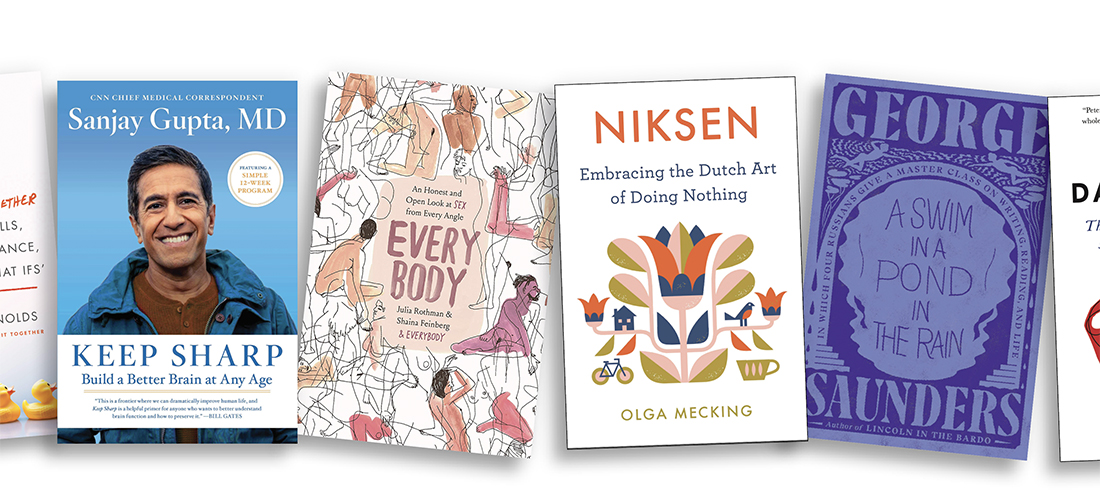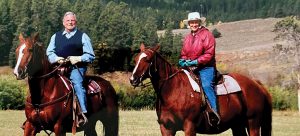
Make It New
January releases to inspire change, sweet change
Compiled by Brian Lampkin
January in the book world is no different than January in all the other worlds. The promise of rebirth, new growth and new selves is met by the equal forces of self-doubt, resistance and inertia. Here we’ll try to break through the standoff and offer you plausible, possible and even pleasurable ways to enact change. And we all need plenty of change after the traumas of 2020.
Jan. 5: What Matters Most: The Get Your Shit Together Guide to Wills, Money, Insurance, and Life’s “What-ifs,” by Chanel Reynolds (Harper Wave, PB: $17.99). On July 17, 2009, Chanel Reynolds’ husband, José, was struck by a van while cycling near their home in Seattle and died one week later. Just hours after the accident, Reynolds realized that she was completely unprepared for what came next: What was the password to her husband’s phone? Were their wills legally binding? How much insurance did they have? Could she afford the house? And what the hell was probate anyway? Simply put, she didn’t have her shit together. As it turns out, neither do most of us. We’re too busy and too overwhelmed, or we don’t know where to start. But here’s the thing: You can’t half-ass the important stuff, and hoping for the best is not a plan. Reynolds learned that lesson the hard way so you don’t have to.
Jan. 5: Keep Sharp: Build a Better Brain at Any Age, by Sanjay Gupta (Simon & Schuster, $28). The longtime CNN medical heartthrob continues to help us through the pandemic, performs brain surgeries routinely and writes books? Keep Sharp debunks common myths about aging and cognitive decline, explores whether there’s a “best” diet or exercise regimen for the brain, and explains whether it’s healthier to play video games that test memory and processing speed, or to engage in more social interaction. Discover what we can learn from “super-brained” people who are in their 80s and 90s with no signs of slowing down — and whether there are truly any benefits to drugs, supplements and vitamins. Dr. Gupta also addresses brain disease, particularly Alzheimer’s, answers all your questions about the signs and symptoms and shows how to ward against it and stay healthy while caring for a partner in cognitive decline. He likewise offers a personalized 12-week program featuring practical strategies to strengthen your brain every day.
Jan. 5: Every Body: An Honest and Open Look at Sex from Every Angle, by Julia Rothman & Shaina Feinberg (Voracious, $28). Have you ever had a question about sex — whether out of curiosity, desire or the sneaking suspicion that you’re, somehow, different? Every Body will help you feel less alone. It’s a huge collection of anonymous stories, essays, artwork and expert tell-alls on myriad subjects, all rolled into one. Really, they’re the conversations most of us are too scared to start. Framed by dozens of artists’ illustrations, deeply personal interviews and expert essays that address stigmas and clichés, this book is an informative, welcoming and inclusive user’s guide to your body, no matter its shape, size or preferences.
Jan. 12: Niksen: Embracing the Dutch Art of Doing Nothing, by Olga Mecking (Houghton Mifflin, $19.99). Don’t just do something, sit there. Backed with advice from the world’s leading experts on happiness and productivity, this book examines the underlying science behind niksen (that’s Dutch for “doing nothing”) and how doing less can often yield so much more. Perfect for anyone who feels overwhelmed, burnt out or exhausted, Niksen does not tell you to work harder. Instead, it shows you how to take a break from all the busyness while giving you sincere, heartfelt permission to do nothing.
Jan 12: A Swim in a Pond in the Rain: In Which Four Russians Give a Master Class on Writing, Reading, and Life, by George Saunders (Random House, $28). Saunders guides the reader through seven classic Russian short stories he’s been teaching for 20 years as a professor in the prestigious Syracuse University MFA creative writing program. Paired with stories by Chekhov, Turgenev, Tolstoy and Gogol, these essays are intended for anyone interested in how fiction works and why it’s more relevant than ever in these turbulent times. Saunders approaches each of these stories technically yet accessibly, and through them explains how narrative functions; why we stay immersed in a story and why we resist it; and the bedrock virtues a writer must foster. The process of writing, Saunders reminds us, is as much a craft as it is a quality of openness and a willingness to see the world through new eyes. Funny, frank and rigorous, A Swim in a Pond in the Rain ultimately shows how great fiction can change a person’s life and become a benchmark of one’s moral and ethical beliefs.
Jan. 26: The Dance Cure: The Surprising Science to Being Smarter, Stronger, Happier, by Peter Lovatt (HarperOne, $22.99). Dancing isn’t just good exercise. Surrendering yourself to the beat can have a far-reaching impact on all areas of your life — it can help you communicate better, think more creatively, and can be a powerful catalyst for change. Losing yourself in the moment to a song or piece of music can also alleviate anxiety, depression and feelings of isolation, Dr. Peter Lovatt has found. Drawing on great stories from dance history as well as fascinating case studies from his Dance Psychology Lab and his own life, Dr. Lovatt shares his best steps and routines, as well as top dance anthems to inspire everyone — even those who believe they “can’t dance” — to turn the music on, stand up and dance themselves happy.
There you have it: Dancing, reading, thinking, sex and a healthy dose of nothing. I can live with these changes in my life. Perhaps 2021 might be bearable after all. OH
Brian Lampkin is one of the proprietors of Scuppernong Books





